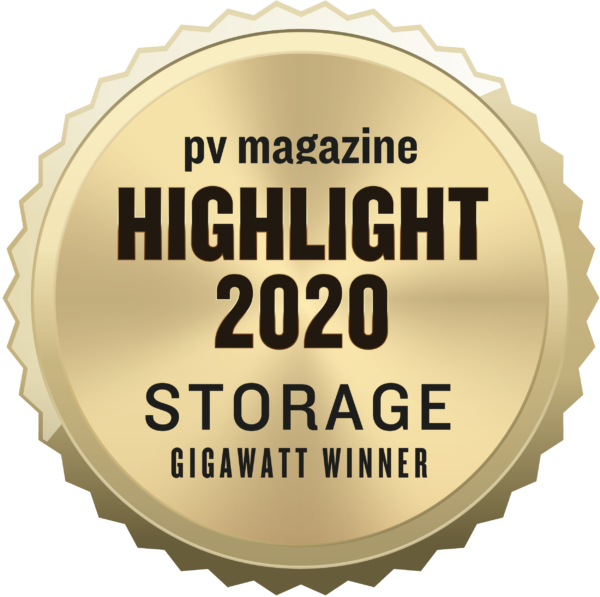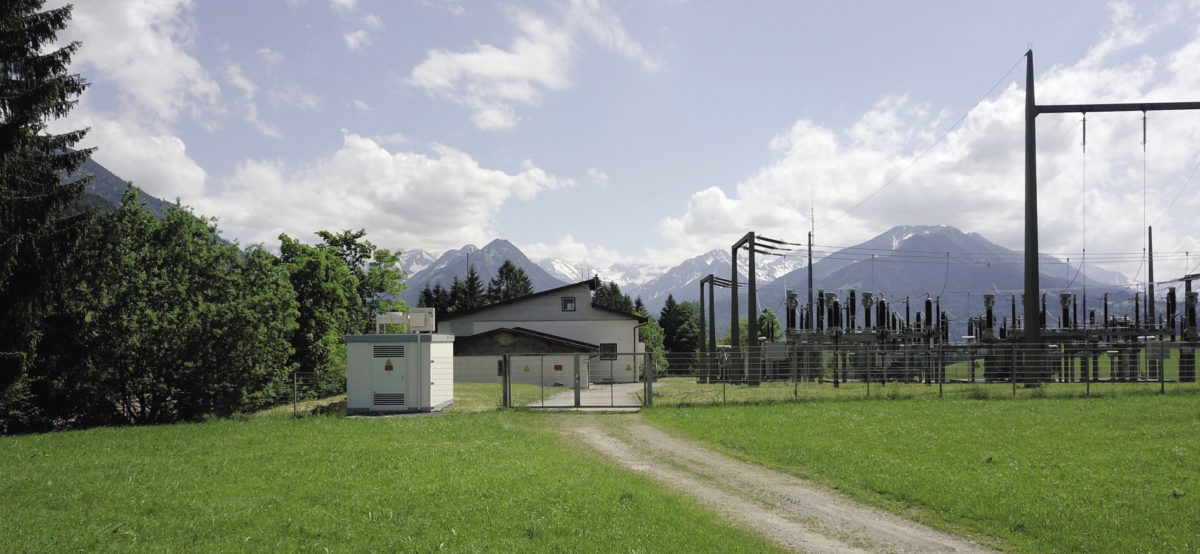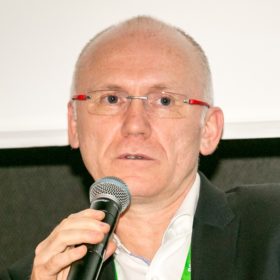Built in partnership with Messe Düsseldorf and Energy Storage Europe, pv magazine’s annual Energy Storage Highlights 2020 special edition is hot off the press. Celebrate this year’s top five awardees at our Insight panel session with discussion among our Gigawatt winners and panel of expert jurors.
Introducing our second Gigawatt Winner… 
egrid and ads-tec
The battery swarm in the power distribution network
With a project set against a breathtaking backdrop, egrid and ads-tec Energy have secured one of the five spots among the Gigawatt winners in Energy Storage Highlights. The two companies have developed a method of arranging medium-sized storage systems within a distribution network and operating them as a swarm so that they can offer a wide range of services.
There has already been plenty of reporting on business models for batteries; their use to shift the solar generation peak, for load peak shaving – when charging electric cars, for instance – or their use in the frequency containment reserve market. But where should the batteries be located to ensure that they do not place an undue burden on the distribution network – or better still, where can they be deployed to reduce grid expansion and at the same time provide the aforementioned services in the local grid? The companies egrid and ads-tec explained how they accomplished this task with their Allgaeu DESS (distributed energy storage system), thus earning them a spot among the Gigawatt winners of the Highlights at Energy Storage Europe.
In the project, the partners installed six battery storage systems, each with a capacity of 336 kWh and a power output of 500 kW, distributed throughout the power network in the Allgaeu, a region in southern Germany with around 1,600 PV systems. The customer is the local distribution network operator, Egrid’s parent company. In contrast to other swarm models, the storage systems are not residential storage units, but medium-sized grid-scale storage systems. And unlike the residential systems, they are run by the grid operator. In theory, location-specific deployment of residential storage could also be used to address similar local distribution challenges, as highlighted in the Allgaeu DESS project – but this would only be possible if distribution system operators were to set up a market or pay for the provision of such services, explains juror Julian Jansen of IHS Markit.
pv magazine Storage Highlights Ceremony
Now as a Webinar!
You are invited to join us online for the pv magazine Storage Highlights Ceremony on March 11, 10am – 11:30am (CET)!
The Energy Storage Europe Düsseldorf has been postponed indefinitely due to Coronavirus. Consequently, we will not be able to host our Insight event live onsite. However, in the age of digitalization we will host the Storage Highlights Ceremony as a webinar.
The five Gigawatt Winners will pitch their winning applications to the expert jury panel with a subsequent discussion by the independent leading analysts.
The DESS concept also has several advantages over a large central storage facility, says Thomas Schönland of egrid. If you want to connect a few megawatts of storage to the grid, you have to build a new grid connection point or expand an existing one, which, he points out, is very expensive. By distributing the battery capacity across six locations, the engineers found that they could reduce grid-connection costs for the project. To find the right locations, the company had to develop a method for evaluating 1,700 possible connection points. Another requirement was to build the storage facilities small enough, as space was sometimes very limited at suitable locations.
However, the biggest challenge, according to Schönland, was developing the control system, to enable the storage systems to operate both locally and also to offer network services as a swarm.
Depending on the use case, the swarm or the local battery unit require different modes of operation, and hence different interfaces to communicate with various market participants. Recharging has to be optimized as well. For the long term, it is also important that the battery control system is easily adaptable to new markets and business cases.
After all, business models are likely to change. This is also a matter of regulation, which makes business models for such storage systems in Germany more difficult to implement. Nevertheless, the companies say that the Allgaeu DESS project was a good solution.
“The intention was not to rely on subsidies, a goal we were able to reach through lean project realization – that is, by finding suitable partners, choosing the best locations and creating a smart control system,” the companies wrote in their submission.
They supplied the turnkey system, with egrid supplying the control technology and ads-tec the battery systems. Their customer is responsible for the business model, so they cannot provide details on the revenue streams.
Jury comments
Julian Jansen: “The Allgaeu DESS project could become a proof of concept for utilizing distribution-grid-sited battery storage to provide critical services at the distribution level. While the aggregation of energy storage systems is in principle not an innovation in itself, the growing need across the world for resilience and smart local networks highlights the importance that pilot projects such as this play in enabling a path for long-term integration of storage.”
James Frith: Local flexibility markets will play an increasingly important role in future power grids. The ADS tec / egrid project is an important milestone towards this development. By allowing the system to act in an aggregate, referred to as ‘swarm' mode, or independently revenues can be maximised depending on local conditions.
Xavier Daval: Thanks to their industrial computing experience, Ads-Tec are designing the innovative decentralized storage solutions that the renewable energy transition is needing. With smarter systems, intermittent energy like solar or wind are no-longer a threat for the grid. The “Swarm” concept allows to dispatch storage units with the ability to either operate individually to filter the energy or as one big unit to absorb pick power.
Jurors
This content is protected by copyright and may not be reused. If you want to cooperate with us and would like to reuse some of our content, please contact: editors@pv-magazine.com.









By submitting this form you agree to pv magazine using your data for the purposes of publishing your comment.
Your personal data will only be disclosed or otherwise transmitted to third parties for the purposes of spam filtering or if this is necessary for technical maintenance of the website. Any other transfer to third parties will not take place unless this is justified on the basis of applicable data protection regulations or if pv magazine is legally obliged to do so.
You may revoke this consent at any time with effect for the future, in which case your personal data will be deleted immediately. Otherwise, your data will be deleted if pv magazine has processed your request or the purpose of data storage is fulfilled.
Further information on data privacy can be found in our Data Protection Policy.